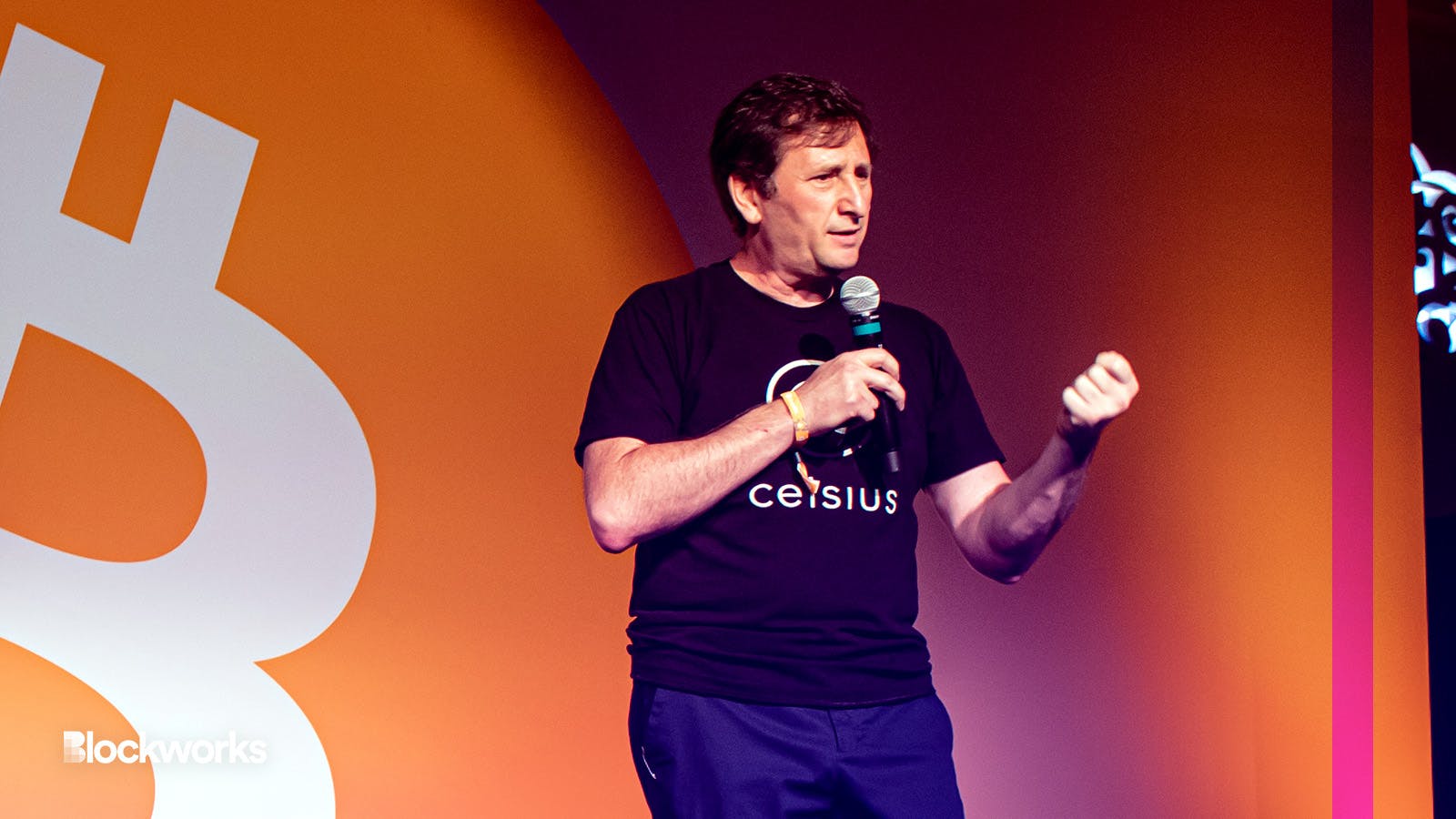Former Celsius CEO assets frozen by DOJ in August
A now-unsealed August order showed the DOJ targeted multiple Mashinsky-linked bank accounts

Former Celsius CEO Alex Mashinsky | Kevin McGovern/Shutterstock.com modified by Blockworks
Former Celsius CEO Alex Mashinsky’s assets were frozen back in August, according to a now-unsealed order.
The original order, put forth by the US Department of Justice, was filed on Aug. 16 under seal.
The filing indicates that DOJ attorneys focused on four Goldman Sachs accounts registered under Koala LLC, as well as an AM Ventures account at Merrill Lynch. In addition, the DOJ froze three accounts held at SoFi Bank, SoFi Securities and First Republic.
And, finally, the DOJ listed an Austin home purchased by Mashinsky and his wife, Kristine Mashinsky, back in 2021.
The order prohibited “attorneys, agents, and employees, and anyone acting on the behalf” of Mashinsky from doing anything with the listed assets, including selling, transferring or disposing of them.
In the Sept. 5 filing, US Attorney Damian Williams said that the relevant parties were alerted to the order and therefore the government does “not believe that further sealing is required.”
However, Williams requested that both the application and the affidavit remain sealed because “they reveal confidential information about our ongoing investigation.”
In late July, the court overseeing the government’s case against Mashinsky granted a request by US prosecutors asking for more time to produce evidence.
Mashinsky was arrested back in July after the DOJ unsealed an indictment against him. Williams — the attorney who wrote to unseal the restraining order — accused Mashinsky of “orchestrating a scheme to defraud customers of Celsius through a series of false claims about the fundamental safety and security of the Celsius platform.”
The DOJ also claimed that Mashinsky participated “in a scheme with Celsius’s Chief Revenue Officer, Roni Cohen-Pavon, to inflate the price of Celsius’s proprietary token, CEL.”
The CFTC, SEC and FTC all targeted the now-bankrupt Celsius. While all three suits had similar claims, the CFTC alleged that both Celsius and Mashinsky misled the public about the financial position of Celsius and defrauded investors.
Get the news in your inbox. Explore Blockworks newsletters:
- The Breakdown: Decoding crypto and the markets. Daily.
- 0xResearch: Alpha in your inbox. Think like an analyst.






